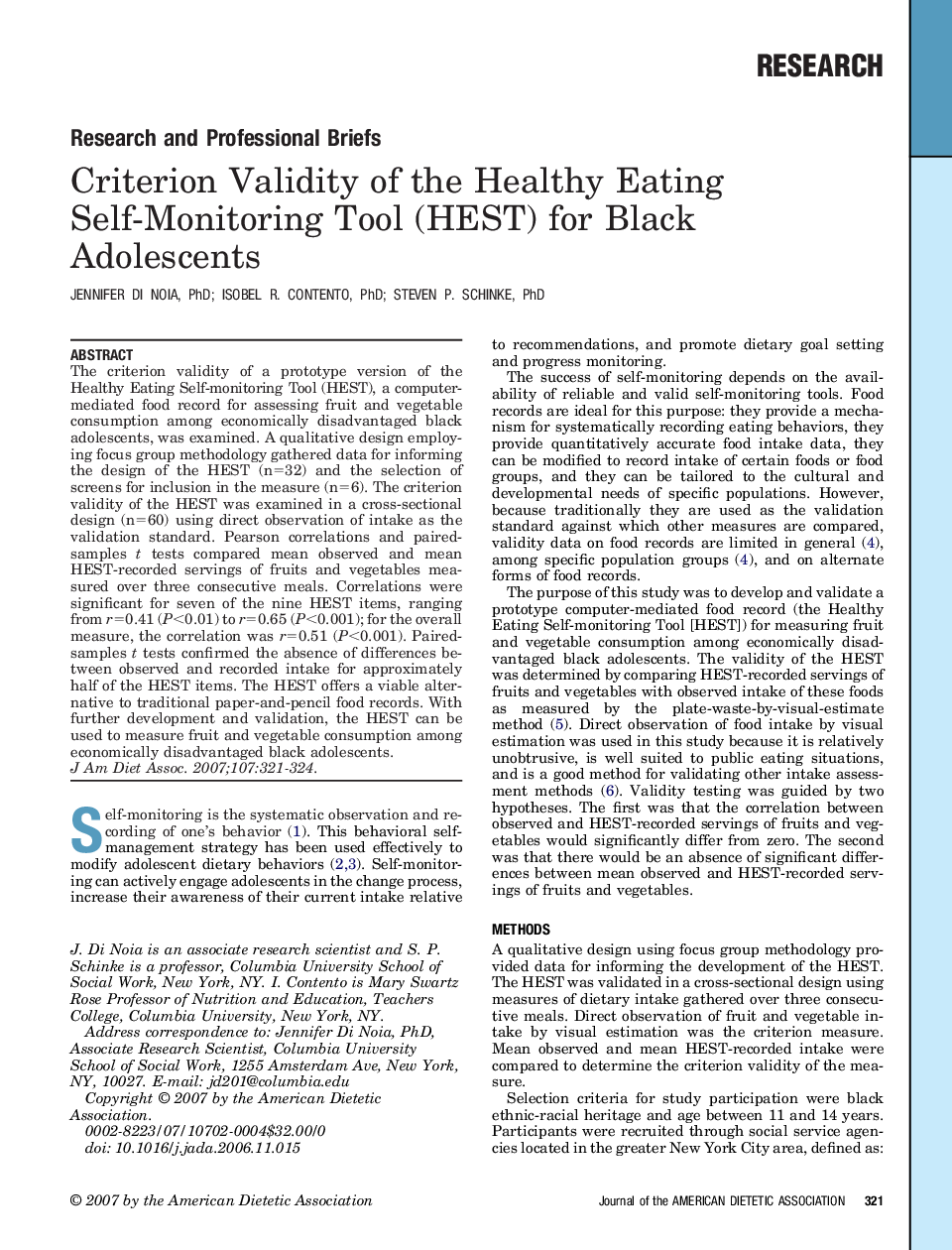| Article ID | Journal | Published Year | Pages | File Type |
|---|---|---|---|---|
| 2658047 | Journal of the American Dietetic Association | 2007 | 4 Pages |
The criterion validity of a prototype version of the Healthy Eating Self-monitoring Tool (HEST), a computer-mediated food record for assessing fruit and vegetable consumption among economically disadvantaged black adolescents, was examined. A qualitative design employing focus group methodology gathered data for informing the design of the HEST (n=32) and the selection of screens for inclusion in the measure (n=6). The criterion validity of the HEST was examined in a cross-sectional design (n=60) using direct observation of intake as the validation standard. Pearson correlations and paired-samples t tests compared mean observed and mean HEST-recorded servings of fruits and vegetables measured over three consecutive meals. Correlations were significant for seven of the nine HEST items, ranging from r=0.41 (P<0.01) to r=0.65 (P<0.001); for the overall measure, the correlation was r=0.51 (P<0.001). Paired-samples t tests confirmed the absence of differences between observed and recorded intake for approximately half of the HEST items. The HEST offers a viable alternative to traditional paper-and-pencil food records. With further development and validation, the HEST can be used to measure fruit and vegetable consumption among economically disadvantaged black adolescents.
